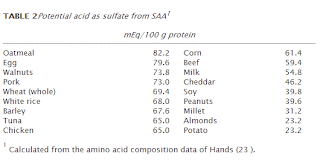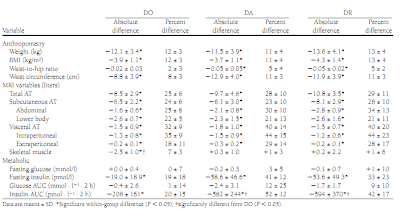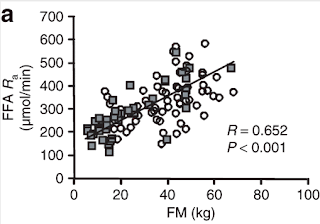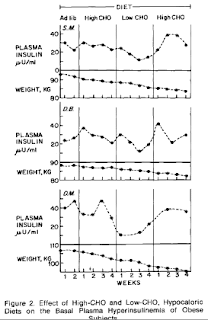Fasting Insulin & Weight Loss
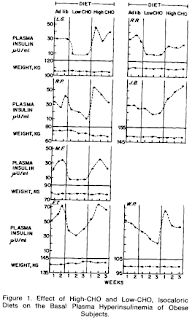
Some folks have been having a bit of a go at me over at Peter/Hyperlipid's blog. I guess it all started by Peter taking some sort of offense to my post on his Potatoes and weight loss post entitled Insulin Caused Cerebral Stress . My intent with my post was not to mock Peter. It was to point out how so inconsistent with observations the carb/insulin hypothesis is, so as to elicit elaborate explanations such as the scenario Peter described to explain a simple phenomenon: Voight lost weight eating potatoes by estimating his energy needs and eating a controlled amount of predominantly potato-derived calories. Peter, himself, started that post discussing the time/pages he had spent developing his theory. I don't question/contest that what he says regarding insulin, sensitivity, etc. may actually be true. I do believe, however, it is irrelevant. I say that because I just do not see consistent evidence to support his assertion that: ...
